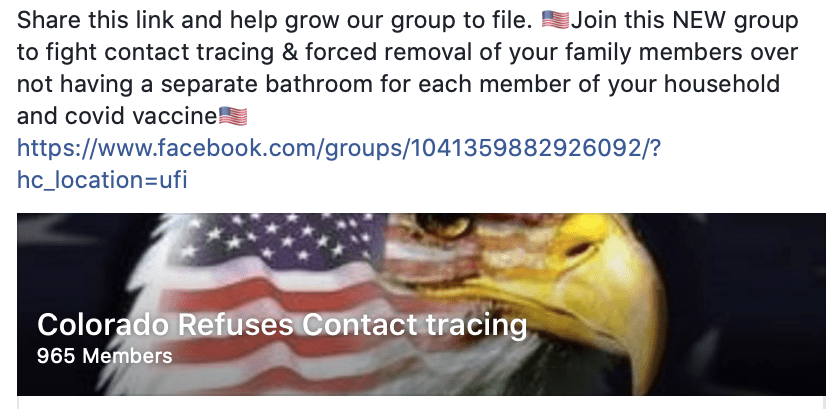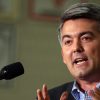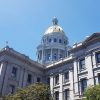“Are we going to start going back to Jim Crow and tagging people, or Nazi Germany where we’re making someone wear a stamp on their chest, because someone has a hateful interpretation?”
That’s Rupert Parchment, former Republican candidate for Colorado Senate District 23, who lost to Barbara Kirkmeyer in Tuesday’s Primaries, talking about the potential “future ramifications” of coronavirus contact tracing.
Contact tracing is an important and long-standing part of epidemic control. When you get tested positive for COVID-19, a contact tracer may call you from your county health department and provide you information on how to keep yourself and others safe.
While they’re at it, they’ll ask who else you’ve been in close contact with (less than six feet, for more than 15 minutes, two days or less before the onset of your symptoms). They’ll then let those people know that they’ve been in contact with someone who has COVID-19. Those individuals will then be advised to self-quarantine for 14 days, and monitor themselves for symptoms.
Contact tracing is crucial in controlling outbreaks and limiting community spread of diseases, say researchers. And it’s nowhere near as novel as COVID-19–contact tracing has been used to deal with SARS, MERS, Ebola, and even smallpox, with success.
Colorado Gov. Jared Polis, a Democrat, has been expanding coronavirus contact tracing–last month, he announced that 800 workers from Americorps and Senior Corps, two community service programs, would be part of the effort in Colorado, with 300 beginning work immediately.
Not everyone is happy with contact tracing, however, seeing it as a violation of their rights for three primary reasons.
Some think their private medical information will be released to the public.
Others worry that the government will track their location on their smartphone.
And some believe that they will be forcibly mandated to remain inside their home for the quarantine period.
In fact, public health workers cannot by law violate your HIPAA rights in the process of contact tracing: they cannot tell your contacts your name or any information but merely that they are at risk for infection because of exposure to someone with coronavirus.
In Colorado, local public health authorities are in charge of contact tracing and epidemic control. According to the Colorado Department of Public Health, “Colorado statute gives local public health agencies authority…to establish, maintain, and enforce quarantine and isolation to protect the public health.” But the state also can institute health orders, if deemed necessary.
Google and Apple have developed a system for Android and iOS smartphones that would monitor an individual’s interactions with other people, as well as their locations–and with a compatible app, the user would be able to notify the owners of phones who came in close proximity that they should consider testing and/or quarantine.
The system, however, would require personal opt-in to an app, and there will be the ability to disable the monitoring function. Most people’s smartphones are constantly monitoring location, unless disabled by the user.
The concern about contact tracing has led to a new private Facebook group: Colorado Refuses Contact tracing. With almost 1,000 members as of Thursday, several notable members include Colorado Rep. Lori Saine (R-Firestone), El Paso County GOP Chair Vickie Tonkins, Otero County GOP Chair Stephanie Garbo, Colorado GOP delegate to the RNC and talk show host Randy Corporon, and U.S. Rep. Doug Lamborn’s (R-CO) District Director Josh Hosler.
The group is not only against contact tracing but strongly against vaccination requirements as well, according to Facebook screenshots obtained by a source.
“Join this NEW group to fight contact tracing & forced removal of your family members….” states the Facebook page of Colorado Refuses Contact Tracing.

Group member Laurie Clark, who announced that she’s running for governor in 2022, started a GoFundMe posted to the group for a lawsuit against the recently-passed School Entry Immunization law, which tightens the immunization exemption process.
Saine declined to comment on the topic of contact tracing, stating that she did not yet have an opinion.
Parchment, another member of the Facebook group, told the Colorado Times Recorder about his concerns surrounding contact tracing.
“I believe that there is a concern, obviously, when it comes to COVID–and it shouldn’t be taken lightly; it’s obviously a serious issue. However, it doesn’t mean out of fear that we violate the rights of every American to not be–to not be judged or tried. What are the future ramifications of this in the future?” said Parchment. “…Are we going to start going back to Jim Crow and tagging people, or Nazi Germany where we’re making someone wear a stamp on their chest, because someone has a hateful interpretation?
“And although it’s supposedly going under the common good of the people, I pause and…use caution, especially in this day and age, when we have GPS technology that could be used against someone to say ‘you are not allowed,’ and we turn into a police state when you step outside of your door because your phone is telling everyone where you are located,” Parchment said. “I just cringe and worry about someone’s–and even my own–constitutional right when we implement such measures in the theme of ‘greater good.'”
State Rep. Kyle Mullica (D-Northglenn) told the Colorado Times Recorder of his support for contact tracing–while at work as an ER nurse.
“We need to get back to working with our public health officials and public health experts and those doctors and epidemiologists and really trust the science behind it,” said Mullica. “I mean, this is the safety of our communities that we’re talking about, and, you know, we have people who spend their lives doing this, and who are experts in the field, and we really need to take that into account.”
“Obviously, I think that the health community pretty well agrees that contact tracing is a way that we can try to make sure that we’re protecting our communities, and being able to trace how this disease is spreading,” Mullica said. “And I know for me personally, I do all that I can to utilize every tool we have to make our communities as safe as they can be, and to help us get through this pandemic.”




